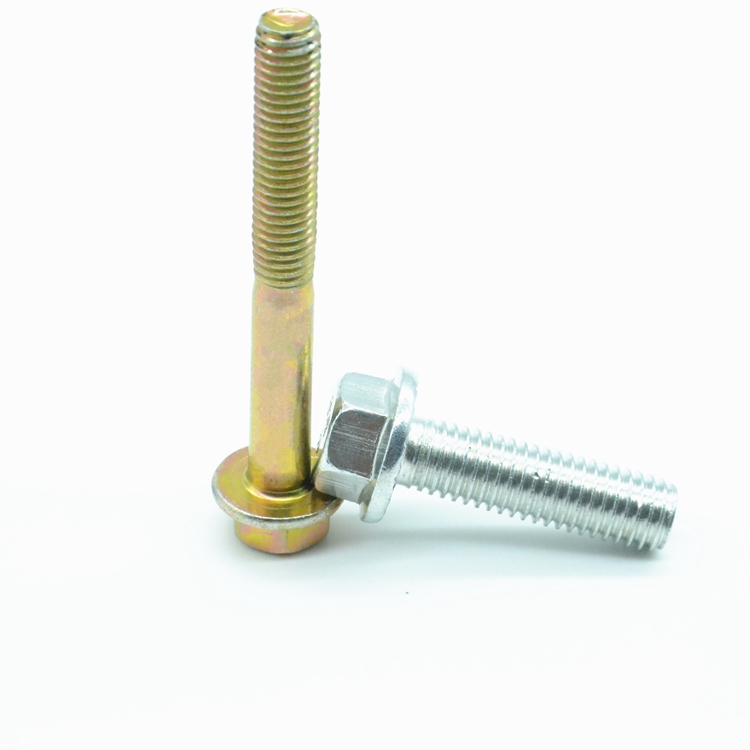din6902 flat washer supplier
Nov . 05, 2024 00:50 Back to list
din6902 flat washer supplier
The Importance of DIN 6902 Flat Washers Choosing the Right Supplier
When it comes to fastening solutions in industrial applications, flat washers play a crucial role. The DIN 6902 flat washer is a standard that specifies a type of washer designed for use with bolts and screws to distribute the load over a larger surface area. This distribution helps prevent damage to the materials being joined and enhances the overall durability of the assembly. With various materials, sizes, and finishes available, selecting the right supplier for DIN 6902 flat washers is paramount for ensuring quality and reliability.
Understanding DIN 6902 Flat Washers
DIN 6902 washers are typically used in mechanical and construction applications where load-bearing capabilities are necessary. These washers are characterized by their flat surfaces and are designed to be placed under the head of a bolt or a nut, reducing the chance of the fastener loosening and providing greater load distribution. The standardized dimensions specified in DIN 6902 make these washers compatible with a wide range of fasteners, enhancing their versatility in various projects.
Why Quality Matters
The quality of DIN 6902 flat washers directly affects the integrity of the construction or assembly. Low-quality washers can lead to improper load distribution, which might result in failure of the fastener system over time. Furthermore, some applications may require additional properties such as corrosion resistance, which can be achieved through proper material selection and finishing techniques. A reputable supplier will provide washers made from high-grade materials such as stainless steel, carbon steel, or even specialized alloys designed to withstand harsh environments.
In industries such as automotive, aerospace, and construction, the safety and reliability of assembled components are non-negotiable. Therefore, choosing a supplier known for adhering to industry standards and conducting rigorous quality checks can be the difference between success and failure in projects.
Finding the Right Supplier
When searching for a reliable DIN 6902 flat washer supplier, there are several factors to consider
din6902 flat washer supplier

1. Reputation and Experience Look for suppliers with a proven track record. Suppliers who have been in the industry for years often have the necessary expertise to provide high-quality products.
2. Quality Assurance Ensure the supplier has stringent quality control measures in place. Certifications such as ISO 9001 can indicate that the supplier adheres to internationally recognized quality management principles.
3. Product Range A good supplier should offer a comprehensive range of DIN 6902 washers, along with other related fastening products. This variety allows for easy sourcing of multiple components needed for a project.
4. Custom Solutions Depending on your specific needs, you may require washers in non-standard sizes or materials. A quality supplier should be willing to provide custom solutions or modifications.
5. Customer Support Excellent customer service is crucial. Suppliers should be able to provide technical support, quick response times, and assistance with product selection based on your project requirements.
6. Competitive Pricing While price shouldn’t be the only criterion, it is still an important factor. Compare quotes from several suppliers to ensure you’re getting competitive rates while not compromising on quality.
Conclusion
In the realm of fasteners and assembly technologies, DIN 6902 flat washers are essential components that enhance overall structural integrity. Choosing the right supplier is critical to ensure these washers meet the necessary standards for quality and performance. By considering factors such as reputation, quality assurance, product range, custom solutions, customer support, and pricing, engineers and procurement professionals can make informed decisions to source the best DIN 6902 flat washers for their projects. Whether in construction, automotive, or manufacturing sectors, a focus on quality and reliable supply chains will lead to better outcomes and a safer final product.
Latest news
-
High-Quality Panel Stud Bolt Reliable Panel Stud Bolt Factory & Suppliers
NewsJul.08,2025
-
High-Precision Fine Thread Locknuts Manufacturer & Supplier Custom Solutions
NewsJul.08,2025
-
PH Imperial Stud Bolt – High Strength Fasteners from Leading Supplier & Factory
NewsJul.07,2025
-
High-Quality Allen Wrench Bolts Leading Factory, Company & Suppliers
NewsJul.07,2025
-
Wholesale Ball Stud Bolt - High Quality Supplier & Factory Price Reliable Wholesale Ball Stud Bolt Company
NewsJul.06,2025
-
High-Strength Alloy Bolts Manufacturer & Supplier Quality Alloy Fasteners Factory
NewsJul.06,2025
